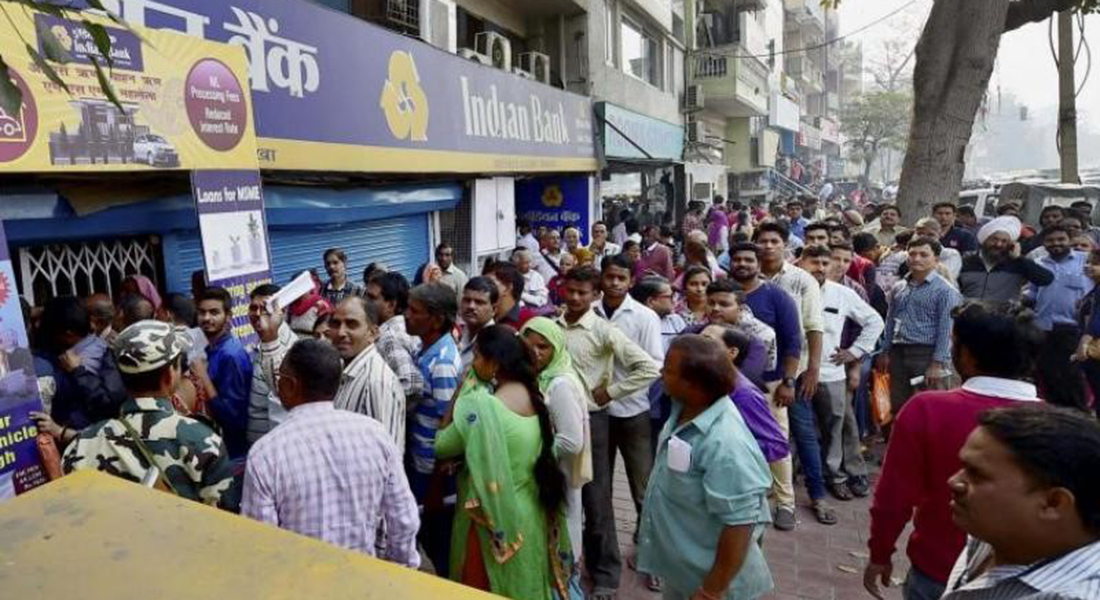Cre-debt: Urban poverty, new credit economies and the global war on cash

PROJECT IS COMPLETED
Project period: February 2018 - March 2019
New fiscal policies and anti-cash campaigns are being rapidly introduced across the globe, and in many platforms debating changes in capitalist economies, this strident economic drive is referred to as ‘the global war on cash’. These forms of demonetization are eliminating cash transactions and replacing them with mobile and online payments, cryptocurrencies, credit and debit cards, and alternative economies of exchange.
Poised at this significant juncture in global economic history, this collaborative project explored the potential impact of this financial turn towards cashlessness on the currently cash-reliant urban poor in middle and high income countries. Focusing on financial debt (the condition of owing money), the project analysed the ways in which poor households across different cashless regimes, respond to the diminishing use of currency in modernising cities.
The project aimed to:
- Empirically study the financial challenges faced by households with informal, cash-based livelihoods within cashless economies
- Explore the new skills, associations and competencies forged by the urban poor as a response to cashlessness
- Theorize how the fading material value of coins and notes can influence localised debt relations in the city.
We referred to the financial wisdom and creative skills that emerged (and fizzled out) around access, use and understanding of new money in the city as urban ‘cre-debt’: a transitional state in the spectrum of formal credit and informal debt mapped onto the socio-economic lives of the urban poor.
The empirical case studies embedded in the current project were based in the context of briskly evolving cashless urban economies in Europe, Asia and Latin America.
Atreyee Sen was PI on the project.
Project partners were based at:
- Stockholm University, Department of Social Anthropology
- University of Southern Denmark, Marketing and Management
- University of Helsinki, Department of History
- University of Oslo, Department of Social Anthropology
Edited collection with 13 contributing junior and senior authors who were attendees for NOS-HS workshop 1 and 2, see appendix:
2020 (forthcoming) Who’s cashing in?: Contemporary Perspectives on New Monies and Global Cashlessness; edited by Atreyee Sen (University of Copenhagen), Johan Lindquist (Stockholm University), and Marie Kolling (DIIS)
See link below:
https://berghahnbooks.com/title/SenWho
Podcast on research theme of workshop series (see link below)
Cashlessness: A Look at Life on the Margins of a Digitalising Economy (by workshop participants Marie Kolling, DIIS, and Camilla Ida Ravnbøl, University of Copenhagen, with interviews from Project leader Atreyee Sen, University of Copenhagen, and workshop participant Gustav Peebles, New School, New York)
https://culanth.org/fieldsights/cashlessness-a-look-at-life-on-the-margins-of-a-digitalizing-economy
Atreyee Sen
Department of Anthropology
Mail: atreyee.Sen@anthro.ku.dk
Phone: +45 35 33 38 82
The project was funded by:
Cre-debt: Urban poverty, new credit economies and the global war on cash has received funding from the Joint Committee for Nordic research councils in the Humanities and Social Sciences (NOS-HS).
Project: Cre-debt: Urban poverty, new credit economies and the global war on cash
Principal investigator: Atreyee Sen
Start: February 2018
End: March 2019
